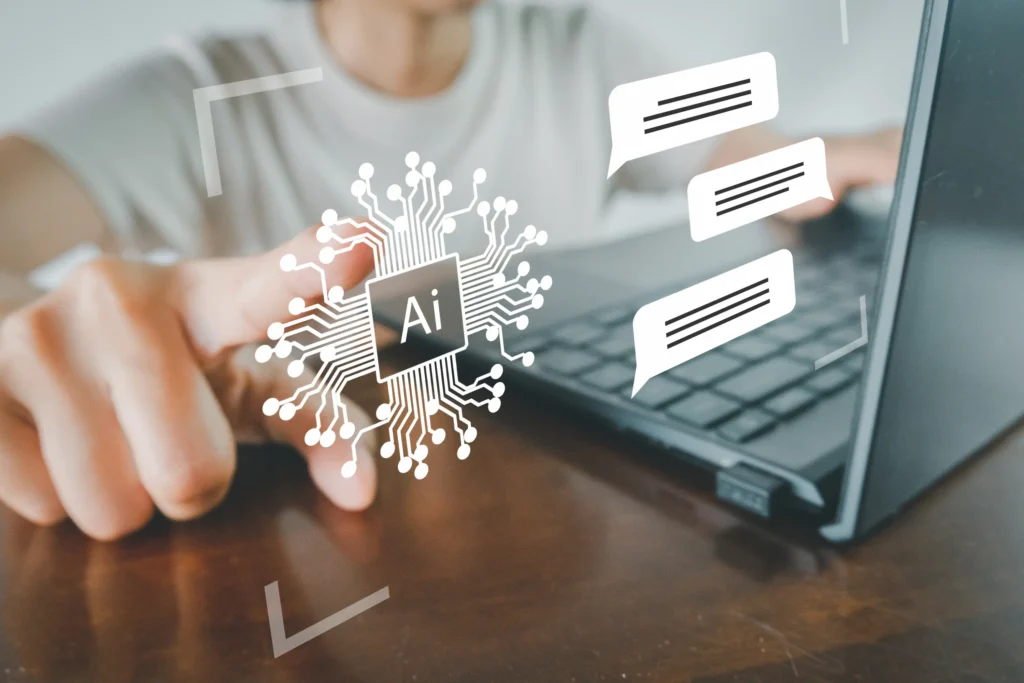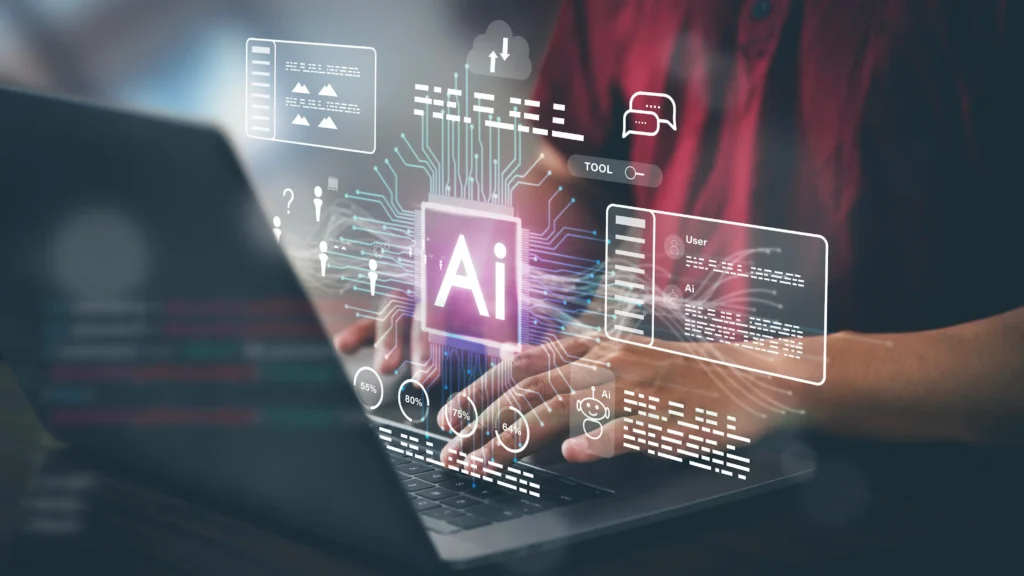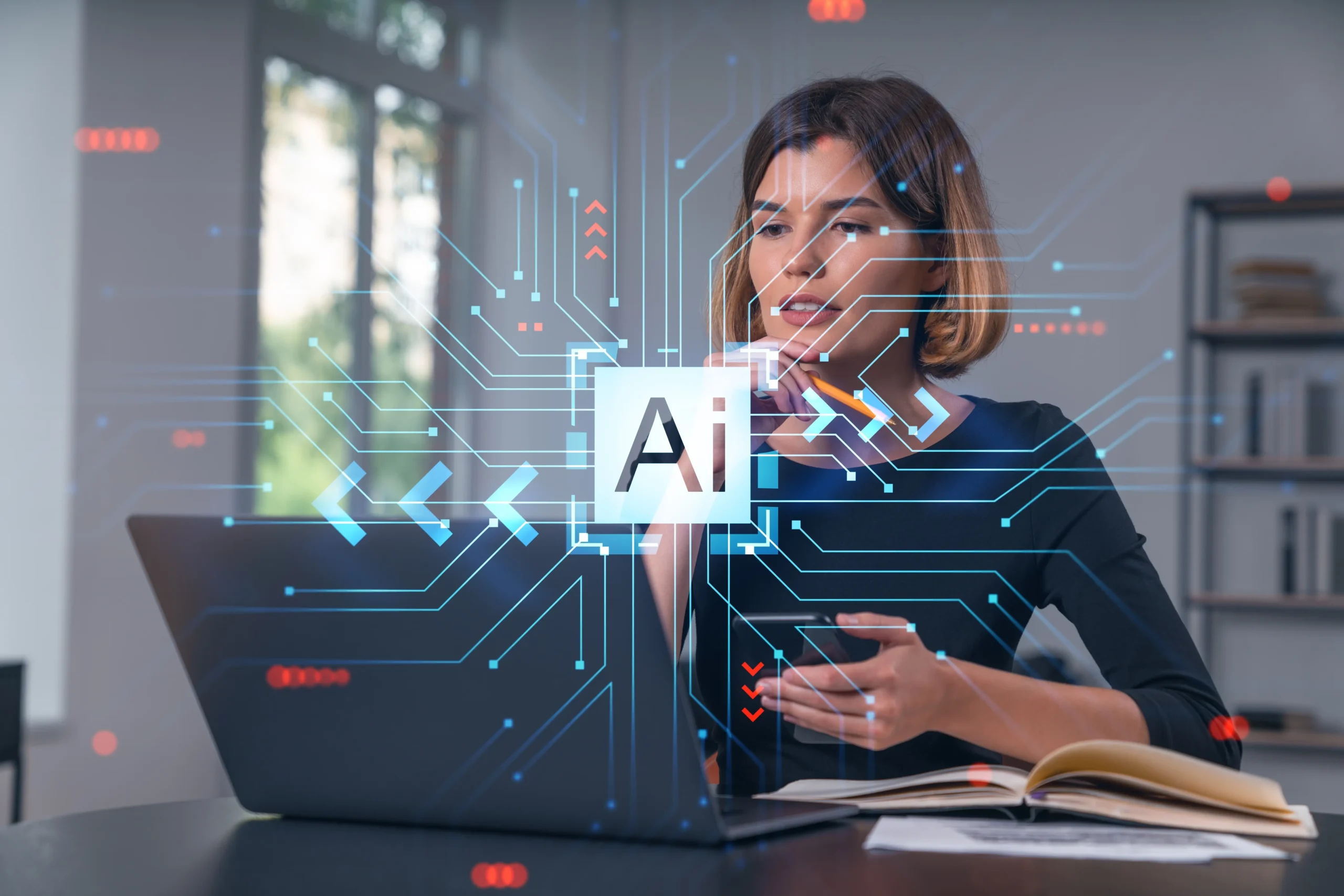The Interaction between Humans and Artificial Intelligence
Artificial intelligence (AI) is no longer a mere science fiction fantasy but an increasingly present reality in our daily lives. From virtual assistants on our smartphones to recommendation systems on streaming platforms, Artificial Intelligence is transforming the way we interact with technology and the world around us.
Artificial intelligence is defined as the ability of machines to perform tasks that normally require human intelligence. These tasks include speech recognition, natural language processing, decision making and machine learning. Thanks to advances in algorithms and increased data processing capacity, artificial intelligence has reached unprecedented levels of sophistication, enabling a wide range of applications in various fields.
In healthcare, for example, artificial intelligence is used to diagnose diseases, design personalized treatments and predict epidemic outbreaks. Artificial intelligence systems can analyze large amounts of medical data, such as MRI images and patient records, to identify patterns and trends that human physicians might miss. This not only allows for more accurate and efficient medical care, but can also save lives by detecting diseases at earlier stages.
In the financial sector, artificial intelligence is used to detect fraud, predict market trends and optimize investment portfolios. Machine learning algorithms can analyze patterns in financial data to identify suspicious activity and prevent fraudulent transactions. In addition, artificial intelligence can analyze market behavior and economic data to help investors make informed decisions about where to invest their money.
In the field of customer service, artificial intelligence is used to improve the user experience and optimize customer service processes. Artificial intelligence chatbots can provide automated responses to common questions, solve basic problems and direct users to useful resources. This not only reduces the workload for human customer service agents, but also provides fast and accurate responses to users, thus improving customer satisfaction.
As artificial intelligence continues to advance, we are likely to see even more examples of its influence on our lives. From autonomous vehicles to real-time translation systems, artificial intelligence is transforming the way we interact with technology and each other. However, it also raises ethical and social challenges, such as data privacy, algorithmic discrimination and the impact on employment. It is important to address these challenges responsibly to ensure that artificial intelligence benefits society as a whole.

Challenges and opportunities of human-artificial intelligence interplay
The rapport between humans and artificial intelligence represents a crucial milestone in modern technological evolution. Artificial intelligence is transforming various aspects of our society and the implications of this interaction.
Challenges of artificial intelligence
Labor displacement: Automation driven by artificial intelligence raises concerns about the loss of traditional jobs. It is essential to develop training and retraining programs to adapt to this new technological era.
Ethics and algorithmic bias: Artificial intelligence systems may generate biased or discriminatory decisions due to data quality or algorithm design. Ensuring fairness and transparency in these systems is fundamental to their acceptance and usefulness.
Privacy and security: The massive collection of data to power artificial intelligence systems raises concerns about the privacy and security of personal information. Strong policies and regulations are required to protect user data and ensure its ethical use.
Technological dependence: The increasing integration of artificial intelligence in our lives also makes us vulnerable to potential failures or abuses. It is important to diversify technology sources and strengthen cybersecurity to mitigate these risks.
Artificial intelligence opportunities
Intelligent automation: Artificial intelligence makes it possible to automate repetitive tasks and improve efficiency in a wide range of industries, freeing up time and resources for higher value-added activities.
Personalization and user experience: Artificial intelligence systems can analyze large volumes of data to deliver personalized experiences and accurate recommendations, improving customer satisfaction and brand loyalty.
Advances in medicine and healthcare: Artificial intelligence is revolutionizing medical care by improving diagnosis, disease prediction and treatment personalization, which could save lives and reduce health care costs.
Innovation and discovery: Artificial intelligence drives innovation by facilitating the exploration of new ideas and solutions through automatic knowledge generation and optimization of research and development processes.
The interpenetration between human and artificial intelligence presents unique challenges and opportunities that require careful consideration and ethical action. Human-AI interpenetration, address these challenges proactively and take advantage of the opportunities offered by human-AI interpenetration, we can build a more prosperous and equitable future for all.

The future of compenetration: Exploring the potential of Artificial Intelligence.
The interpenetration between humans and artificial intelligence is an ever-evolving phenomenon that promises to radically transform our society and economy in the years to come. In this section, we will examine emerging trends and the future potential of this symbiotic relationship.
Technological advances and innovative applications
Advances in artificial intelligence are driving the creation of innovative applications in a variety of fields. From medicine to education, artificial intelligence is proving its ability to solve complex problems and improve people’s quality of life. For example, in the healthcare field, artificial intelligence-assisted diagnostic systems are helping doctors identify diseases more accurately and quickly, leading to more effective treatments and better patient outcomes.
Integration into daily life
As artificial intelligence becomes more accessible and ubiquitous, it is expected to become even more integrated into our daily lives. From virtual assistants to smart home devices, artificial intelligence is changing the way we interact with technology and simplifying many mundane tasks. For example, voice assistants such as Siri and Alexa are helping people perform a variety of tasks, from scheduling appointments to controlling home devices, just by using voice commands.
Ethical and social implications
However, the rapid growth of artificial intelligence also raises important ethical and social questions that must be addressed. For example, automation driven by artificial intelligence could have negative consequences on employment, displacing workers from their jobs and exacerbating economic inequality. In addition, the increasing reliance on artificial intelligence in critical decisions, such as healthcare and justice, raises concerns about fairness and transparency in the decisional process.
Human-artificial intelligence collaboration
Despite these challenges, the future of human/artificial intelligence interpenetration promises to be promising. Rather than completely replacing humans, artificial intelligence has the potential to complement and enhance our existing capabilities. For example, in the field of creativity and innovation, artificial intelligence can help humans generate new and exciting ideas by analyzing large data sets and identifying emerging patterns and trends.
The future of human/artificial intelligence interpenetration is complex and multifaceted. While it presents significant challenges, it also offers countless opportunities to improve our lives and solve some of our society’s most pressing problems. It is critical to address these issues with an ethical and human-centered approach to ensure that artificial intelligence benefits everyone in an equitable and sustainable manner. With careful and thoughtful collaboration, we can make the most of the transformative potential of artificial intelligence in this time.



